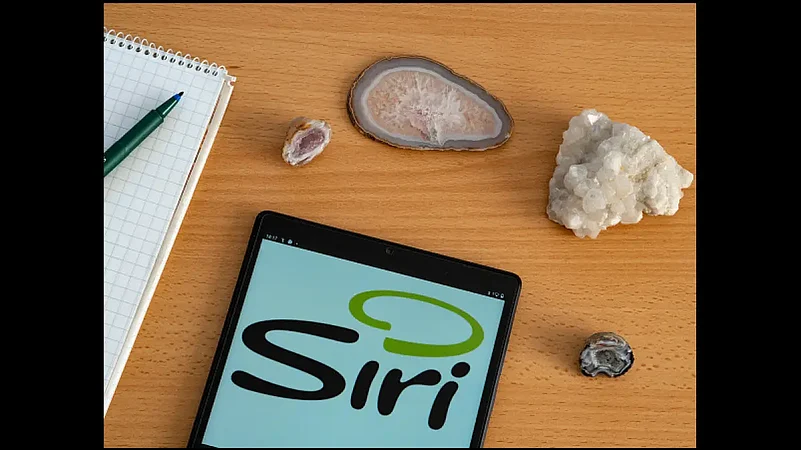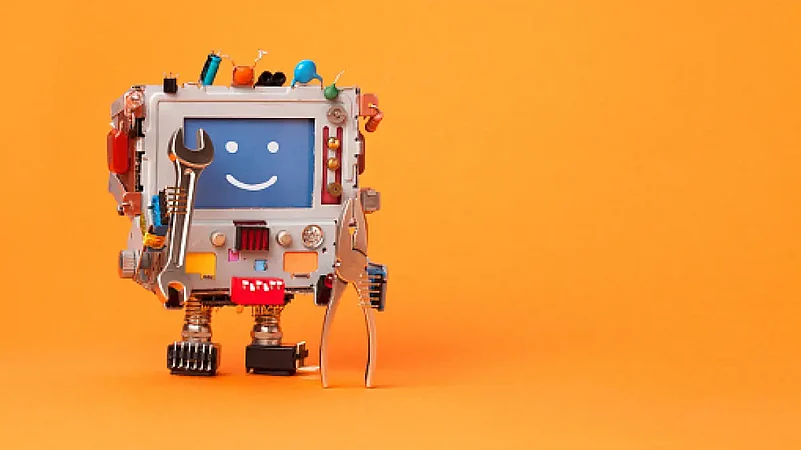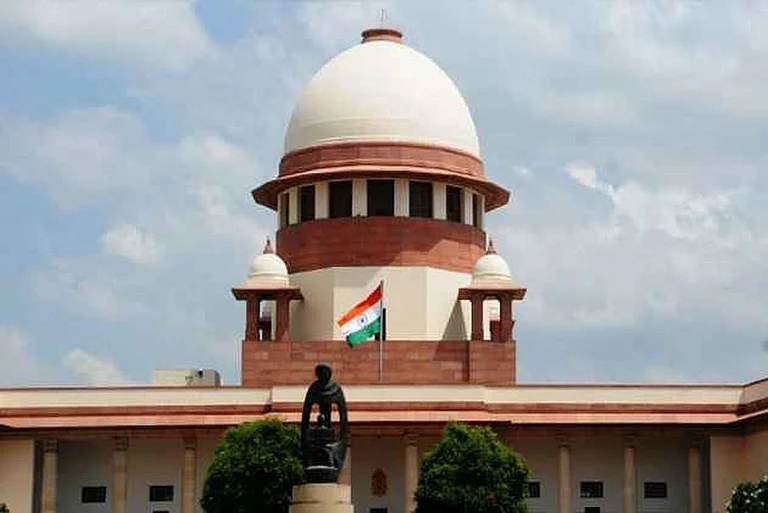Mild-mannered to a fault, and contrary to his name, Waghmare had never shoved his way into the train at Bandra station. He chose, instead, to get pushed and flowed into the bogey with the crowd.
He was fascinated by the machismo of men who hurled obscenities, but gaalis never left his lips. “How could you?” he told himself. “Not in the house. Not in front of the kids. To the wife, never.”
His anger found its egress when confronted with the TV set. “Chal phut saala,” he would say and press the remote like a gun, killing the TV, at bedtime. “Chal hut chutiya,” he would mutter, switching the channel. “Screw you,” he would tell the news anchor. “Chal bhag chudail,” he barked at the feminine voice announcing the floors, in the lift.
He cursed at these machines like a sailor. He spat fire at the TV, the washing machine, the fridge, the idli-mixer, the oven, the blender. He had soon told most of the electronic world to ‘fuck off’. He felt a thrill of manliness.

Time quietly changes the scenery around us. His wife died one morning. They said it was cardiac arrest. The children returned to their jobs in USA and Singapore after the 13th day.
Waghmare was a bachelor again. Making sambar-rice gave him some purpose. He tried to make peace with the aloneness that enveloped him. He went to parties when called but witnessed everything from behind his curtain of silence.
The children in the colony noticed the change. Waghmare uncle had gone mum. He didn’t talk back to the lift lady anymore. He had sealed himself within an oath of uncommunicativeness.
Silence is like a dog that rushes to bite you, they say, and Waghmare often felt its teeth as he lay marooned within his four walls. He gazed wistfully at the pictures on his phone. The wedding pictures of his son. Everyone looked happy, especially Kanta, his wife. He would enlarge her picture and stare at it. “She will speak any moment,” he would say.
He must have accidentally pressed some button on the phone. A voice chimed out: ‘Hi there’. He dropped the phone, taken aback. That night he called his son in the USA and asked him about the lady inside the phone. “That is Siri, Baba. You can ask her about the weather and Siri will talk to you.” Like a ninth-grade student learning a chemistry experiment, Waghmare dived into mastering Siri.
This ‘bai’ inside the phone had thrown him a lifeline. Waghmare began to visualize the people sitting in the machines surrounding him. His world was reanimated again.
He thanked the announcer in the lift every time he exited on the 6th floor. He was patient with the TV anchors and said ‘ok, theek hai, go on.” Every morning, when the speaking alarm woke him up, he would say, “Good morning to you, too.”
Waghmare witnessed the anthropomorphic nature of machines and conversely observed the machine-like nature of humans. He made a note that Ganpatrao yanked up his pyjamas with mechanical regularity. Mrs Hemlata was foghorn-like, shouting at her kids all day, calling them ‘aye duffer’, and Hegde emitted smoke like a paper mill, uncaring of his health.
Waghmare smiled sunshine all day and hugged everyone with words of warmth. His heart ticked away merrily, like a well-oiled machine, into his sunset years.





















